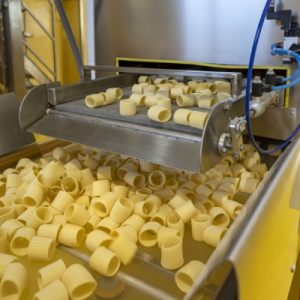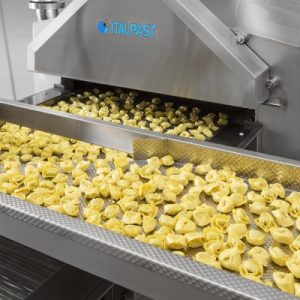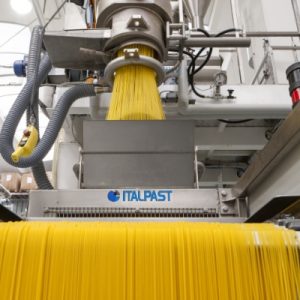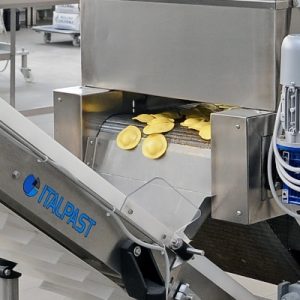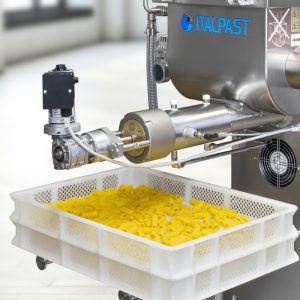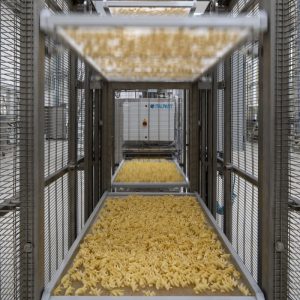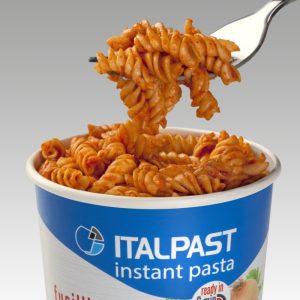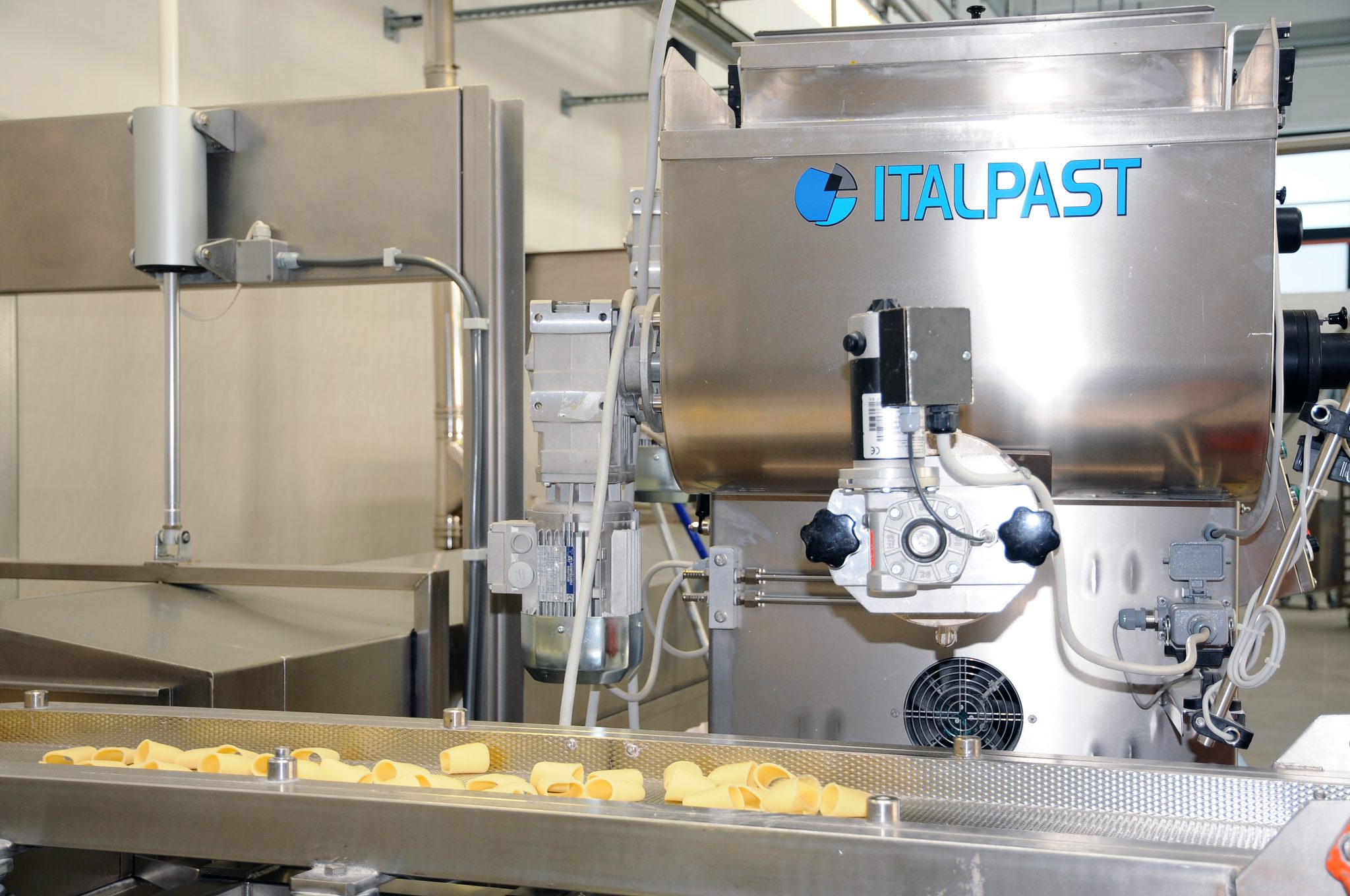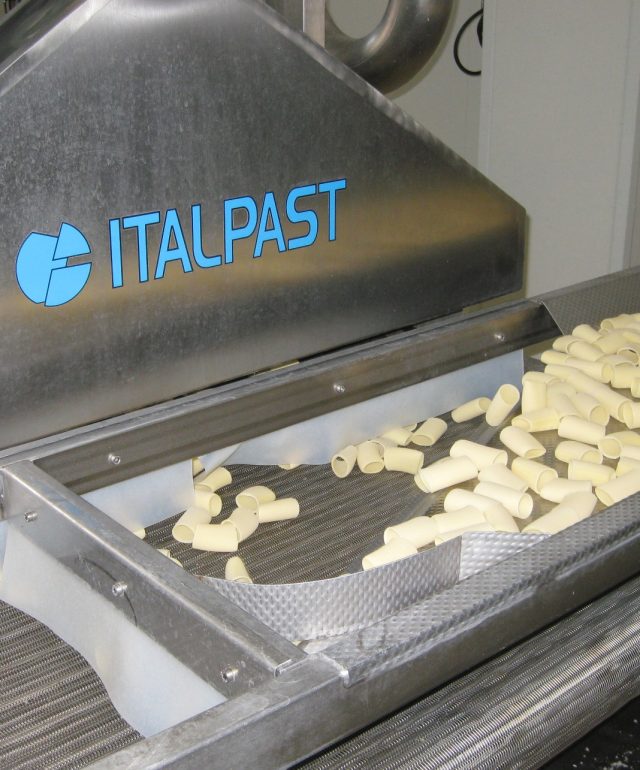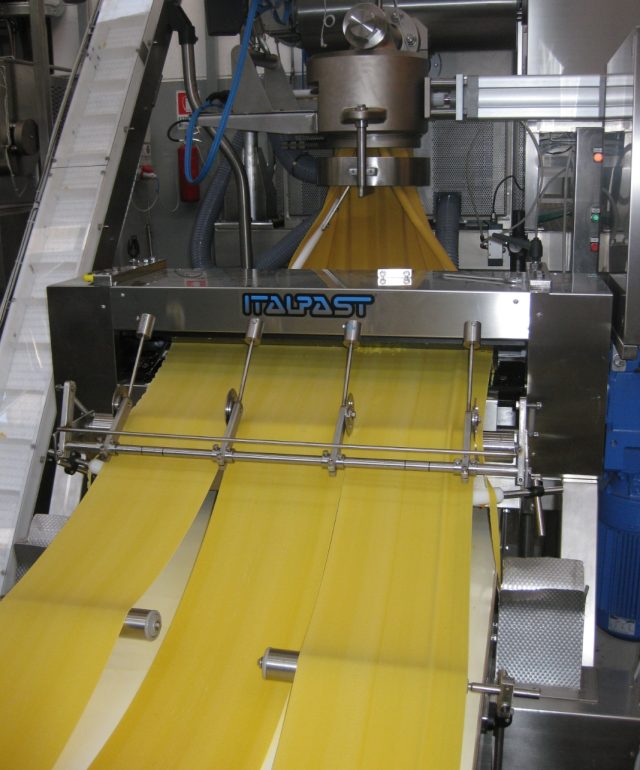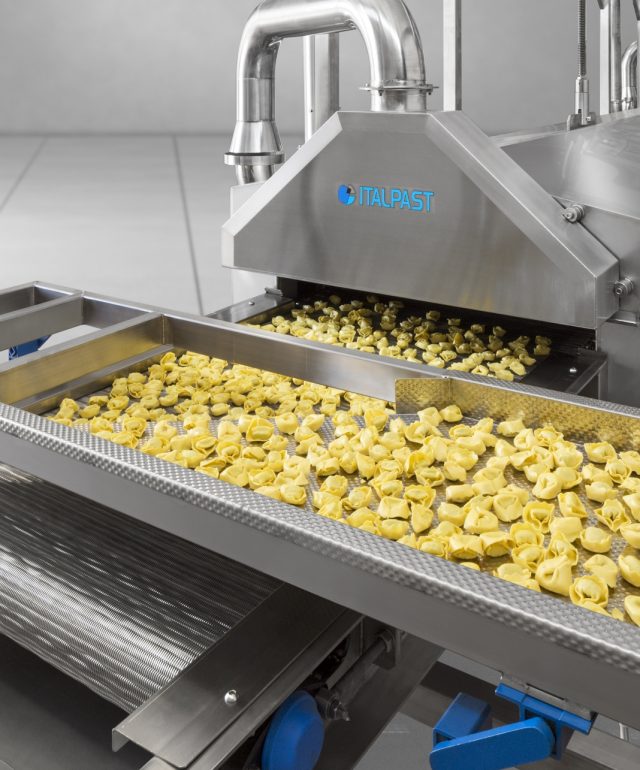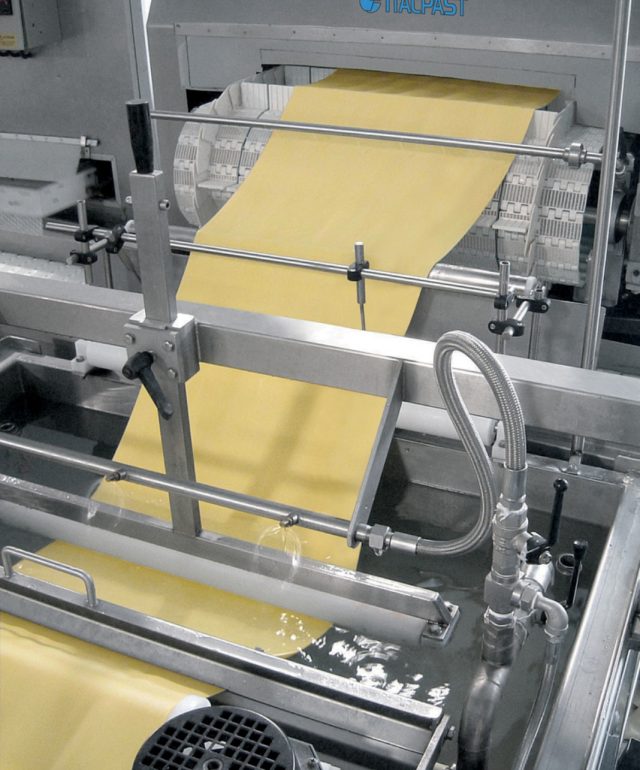What type of fresh pasta would you like to produce?
The artisanal sector is characterized by the production of “very fresh” pasta, packaged fresh pasta and fresh frozen pasta.
The of “very fresh” pasta stands for the best product quality and the short shelf-life, and consequently in the laboratory you can find only machines and devices for the production of the different shapes. In the packaged fresh pasta (filled and unfilled), five essential phases can be distinguished: selection and mixing of the raw materials, production process, thermal treatment, packaging in modified atmosphere and cooled-storage.
In a modern artisanal lab the equipment required for production is: Extruder/Sheeter for the production and moulding of any kinds of short-cut pasta and long pasta besides sheet pasta for filled products; double-sheet Ravioli machine, Forming machine for cappelletti e tortelloni, Gnocchi machines and, when need be, machines for the production of special pasta. The thermal treatment is fundamental for foodstuff safety, enabling fresh pasta sanitation and extending its shelf-life thus satisfying the commercial distribution needs.
At exit of the pasteurizer the product is pre-dried to reduce pasta humidity and temperature thanks to suitable multi-tier or mat-equipped machines running by forced hot air. The product requires further temperature lowering in order to prevent free water to generate inside the package.
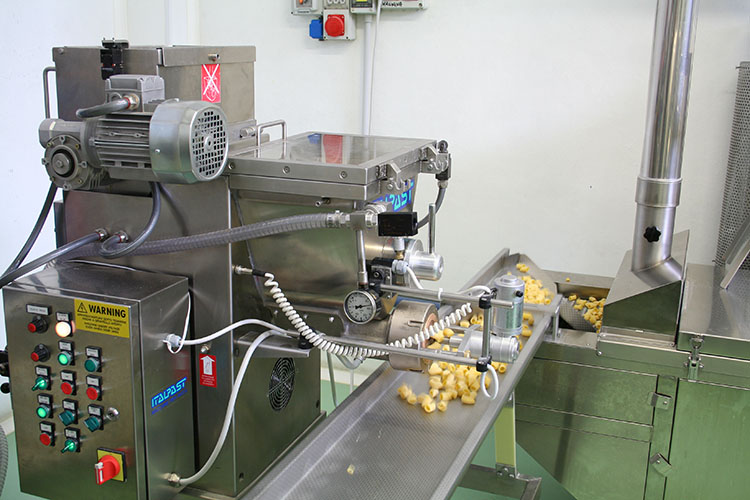
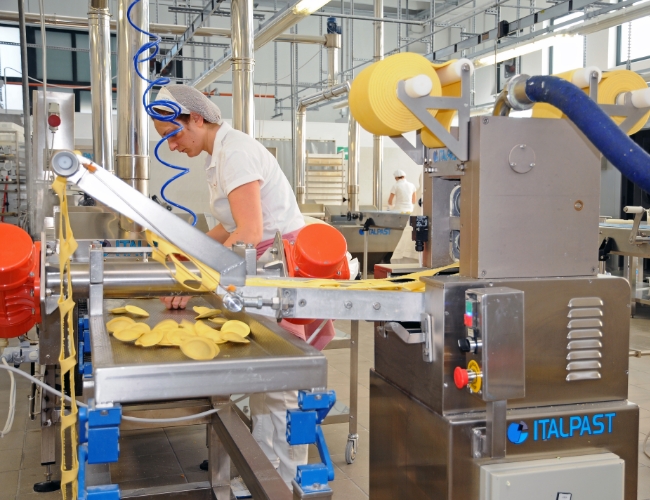
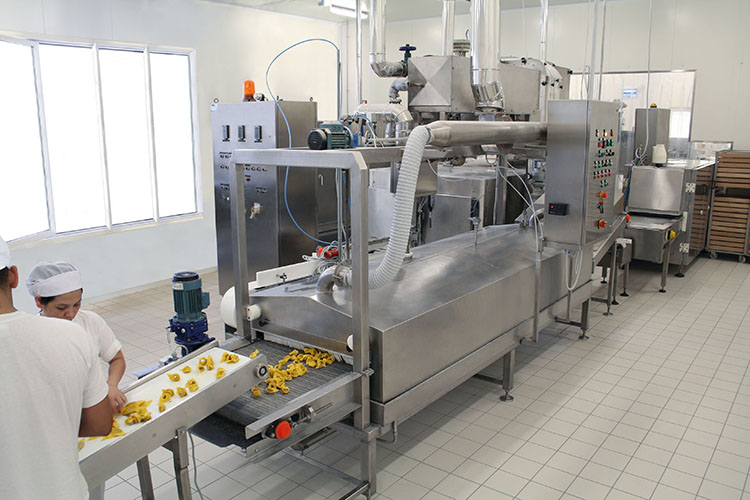
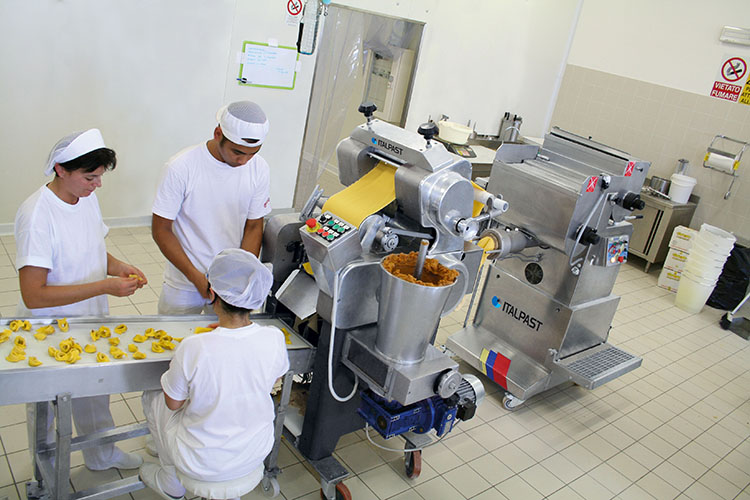
For packaging and distribution a thermal treatment is required to make the product suitable to the chosen commercial channel. The production of fresh frozen pasta provides the use of a temperature decrementer at the end of the line that takes the product at a temperature of -20 degrees, securing the quality and shelf-life of product for long periods.
Video delle nostre linee continue per macchine di pasta artigianale fresca
Pasta production LinesOther plants for artisanal pasta
Contact usAsk for an advice to our technical Experts to implement the most suitable line for your needs
HEADQUARTER
43036 Fidenza (PR) – Italia
REGISTERED OFFICE
43121 Parma – Italia
